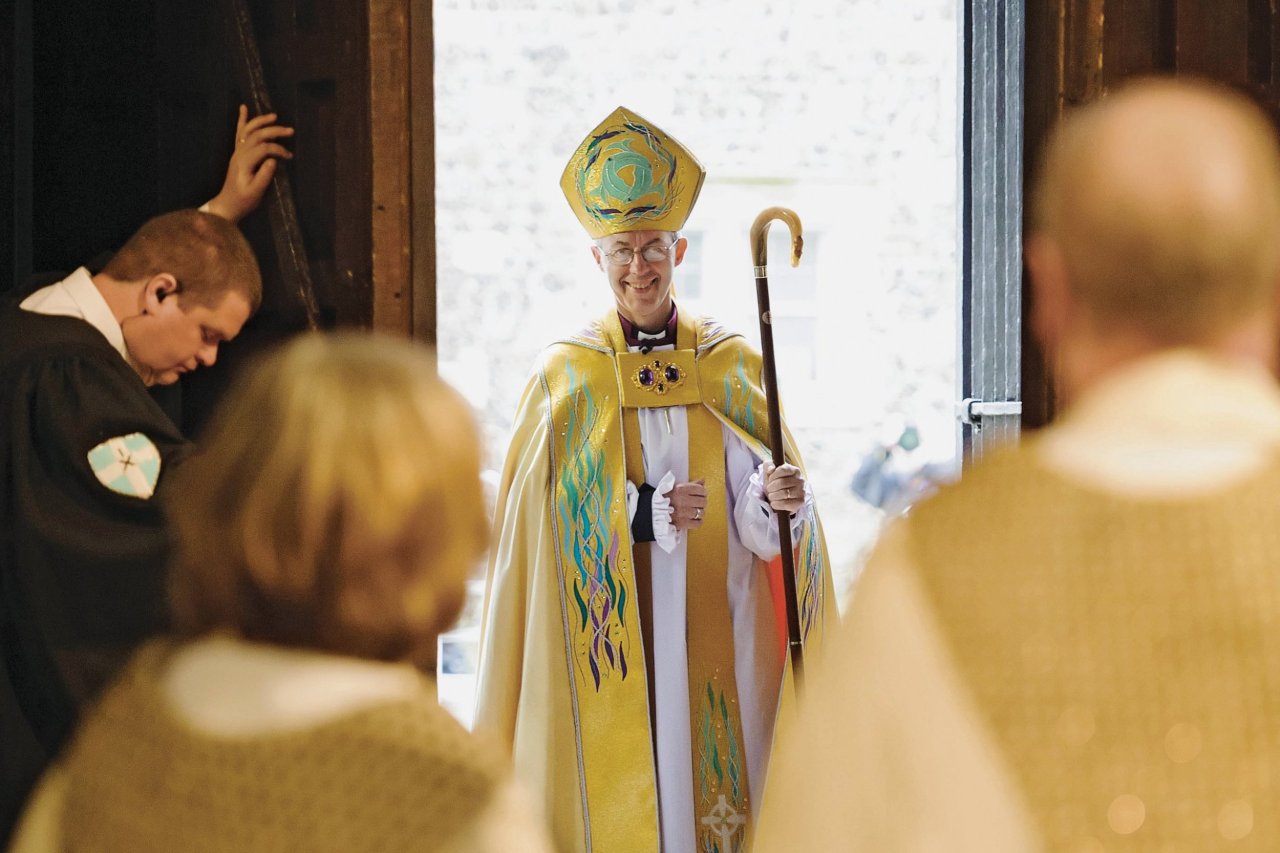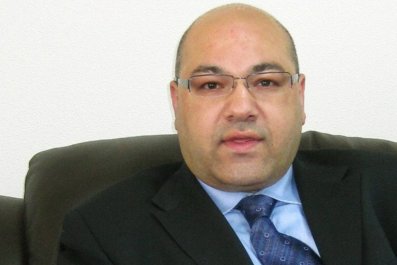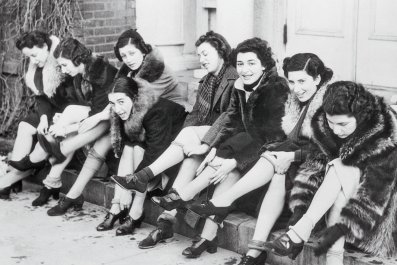The leader of the Anglican Church is shifting his sights from the ecumenical to the economical: Justin Welby, the archbishop of Canterbury, recently put forward an intriguing proposal that would closely link the Church of England to credit unions. Under the plan, credit unions would be permitted to operate out of church buildings, and church volunteers would be encouraged to work with the financial cooperatives.
The ultimate goal? To help British citizens who are in fiscal difficulty avoid the astronomical interest rates of subprime lenders and payday loans. Indeed, Welby revealed last week that he had confronted the head of Wonga—a British payday-loan company—and warned him that he would try to shut his business down. "I said to him quite bluntly that 'we're not in the business of trying to legislate you out of existence; we're trying to compete you out of existence,'" the archbishop told Total Politics magazine. (Subsequently, the Financial Times revealed that the church had invested in a company linked to Wonga—prompting Welby to say he was "irritated and embarrassed.")
Welby, 57, has been in his new job for only four months, but it's already clear that he is no ordinary clergyman. In 1989 he resigned as an executive in the oil industry, where he had worked for 11 years, saying he felt a calling to join the church. After three years studying theology, he took a junior role in a small church. Almost 20 years later, he was ordained as a bishop and joined the House of Lords, where he was appointed to the Parliamentary Commission on Banking Standards. The unusual combination of moral authority and executive experience makes him a formidable figure.
A credit union has already started operating inside a church in the pretty market town of Louth, in Lincolnshire. "There was a real problem of doorstep lending in our area. People were getting into a cycle of debt," Peta Hill, who is running the program at the church, tells me. "We helped one single mother in her early 20s, with a young baby. She didn't have a bank account or understand how to manage her money. The credit union changed her life."
Malcolm Brown, director of mission at the Church of England and the person who led the church's research on the idea of supporting credit unions, argues that the commercial banking sector has become deeply dysfunctional. "The archbishop's last three jobs have been in quite hard-pressed communities. He was struck by the real difficulty people in poverty experienced in accessing the kind of financial institutions that could help them. When he was on the banking commission, he realized that what we were looking at here was market failure," Brown tells me. "We want to offer something different." Anna Sofat—a board member of Fair Finance, a social enterprise that offers affordable loans to people with bad credit—puts it this way: "The church needs to become relevant again, and how better than by helping the most vulnerable?"























